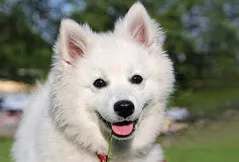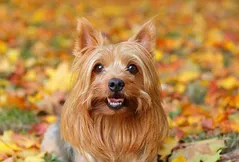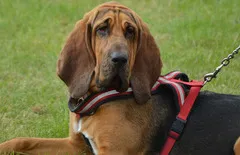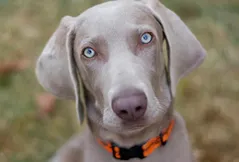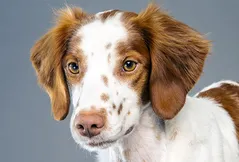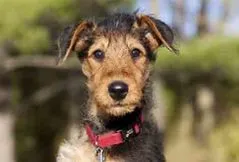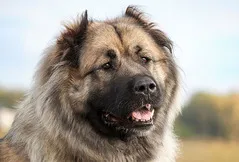
Caucasian Shepherd Dog
Caucasian Shepherds are extremely loyal and devoted by nature. They are superb watchdogs and considered to be among the best in the world.
Overall Status
| Height | 23 to 30 inches |
| Temperament | Fearless, Bold, Kind |
| Weight | 99 to 170 pounds |
| Life Expectancy | 10 to 12 years |
| Coat Color | White, Black, Fawn, Cream, Rust, Grey |
| Barking Level | Likes To Be Vocal |
Quick Factors
| Playfulness | |
| Dog Friendly | |
| Exercise Need | |
| Grooming Needs | |
| Strangers Friendly | |
| Family Affectionate |
Daily Care
Grooming Tips
You are going to want to feed yourCaucasian Shepherd Dog a formula that will cater to his unique digestive needs throughout the various phases of his life. You should continue the food your breeder recommends until your puppy is at least 6 months old (unless there is a compelling reason to change). Reputable breeders will help you ensure that your puppy receives proper nutrition with quality foods that help him/her grow in a healthy way. When it’s time to change, many dog food companies have breed-specific formulas for small, medium, large and extra-large breeds. Caucasian Shepherds are a large-extra-large breed. A good general rule is to avoid kibbles with low-quality ingredients, as these are not digestible.What you feed your dog is an individual choice, but working with your veterinarian and/or breeder will be the best way to determine the frequency of meals as a puppy and the best adult diet to increase his longevity. Clean, fresh water should be available at all times.
Exercise Tips
Caucasian Shepherds do best with a large yard and are suitable for familiesthat like daily walks. For safety, because they are an intelligent and independent breed, they should be kept contained when exercised, such as in a fenced yard and on-leash when being walked. Even though it is a low energy dog, he should have good endurance for walking and hiking. Some breeders encourage endurance tests.
Feeding Tips
You are going to want to feed yourCaucasian Shepherd Dog a formula that will cater to his unique digestive needs throughout the various phases of his life. You should continue the food your breeder recommends until your puppy is at least 6 months old (unless there is a compelling reason to change). Reputable breeders will help you ensure that your puppy receives proper nutrition with quality foods that help him/her grow in a healthy way. When it’s time to change, many dog food companies have breed-specific formulas for small, medium, large and extra-large breeds. Caucasian Shepherds are a large-extra-large breed. A good general rule is to avoid kibbles with low-quality ingredients, as these are not digestible.What you feed your dog is an individual choice, but working with your veterinarian and/or breeder will be the best way to determine the frequency of meals as a puppy and the best adult diet to increase his longevity. Clean, fresh water should be available at all time
Health Tips
Like all breeds, there may be some health issues. Some dogs may be faced with these issues in their lives, but the majority of Caucasian Ovcharkas are healthy dogs.Working with a responsible breeder, those wishing to own a Caucasian Ovcharka can gain the education they need to know about specific health concerns within the breed. Good breeders utilize genetic testing of their breeding stock to reduce the likelihood of disease in their puppies.
Trainability
Extremely independent and intelligent, theCaucasian Shepherd Dog can prove difficult to train for obedience but not impossible. Although active while outdoors, they are usually fairly quiet in the house. Prospective owners should take note: the breed is highly protective of their family and property, so it may be difficult to bring people into your home.
History
The Caucasian Shepherd's history is a bit of a mystery, but what is known is they are descendants of ancient breeds. There is archaeological evidence recently discovered that indicates the breed might have its origins in Mesopotamia although some experts believe these dogs were first bred in Tibet and were then introduced to the Caucasus over time.There are those who claim these dogs are the descendants of wolves found in the Caucasus, but with all the legends and beliefs of how the breed came about, what is known is that the Caucasian Shepherd Dog has helped herdsmen and shepherds guard their flocks against large predators for centuries in the mountainous regions of Georgia, Azerbaijan, Armenia, Daghestan as well as the steppes of the northern Caucasus and the Astrakhan regions of the land.Caucasian Shepherd dogs have always been highly regarded in their native lands for being excellent watchdogs and were used to guard not only property but large flocks of livestock in challenging conditions and over difficult terrains. There were many "types" found throughout the different regions and dogs were used for different tasks too. The dogs that worked in the trans-Caucasus regions of the land were bigger with heavier coats whereas the dogs found working the steppes boasted much rangier builds and shorter, lighter coats. However, the dogs we see today are bred to conform to a breed standard. The protectiveness and devotion to defending their owners and flocks are legendary.At one time, the breed was so popular and highly prized that the former Soviet authorities established state kennels where dogs were bred to guard government facilities and factories throughout the country. In America, the breed found favor with the army for being such reliable and trustworthy dogs and as a result, they were used in the field as service dogs.Although, relatively unknown here in the UK, more people are showing an interest in the breed thanks to their extremely large size and the many images of Caucasian Shepherds with their owners appearing on the Internet. The breed was recognized by The United Kennel Club of America in 1995 and they are now a recognized American Kennel Club breed, but these handsome, noble dogs are not yet recognized as a breed by The Kennel Club here in the UK (November 2017).

